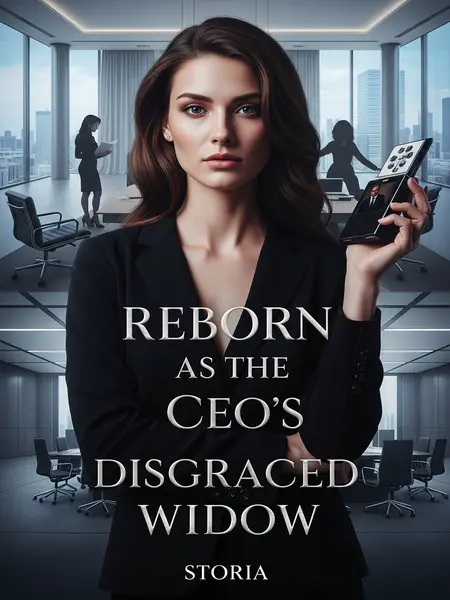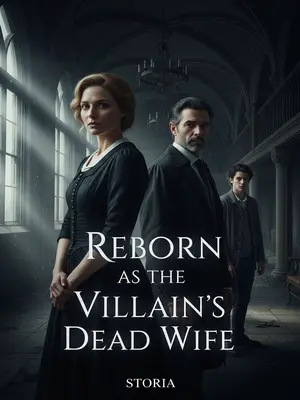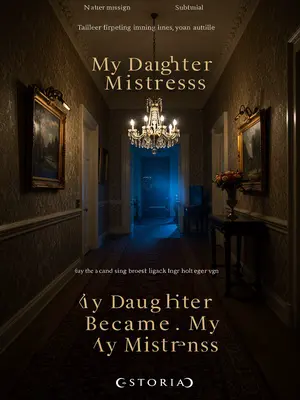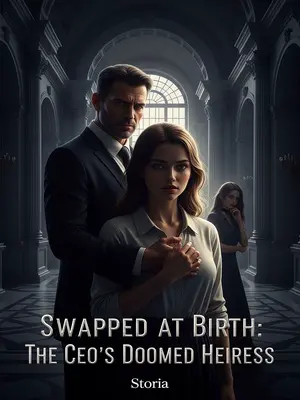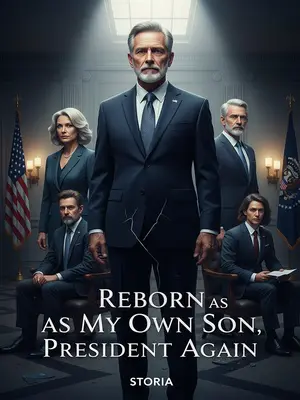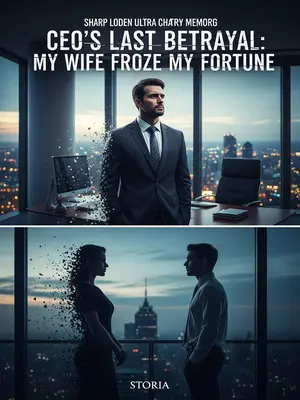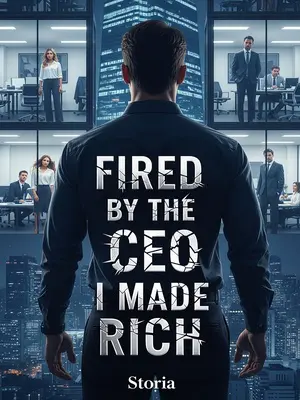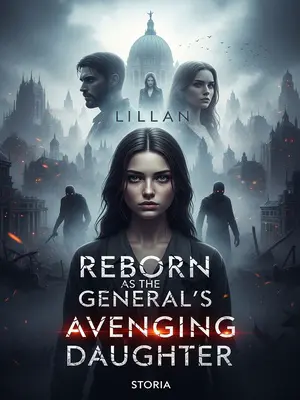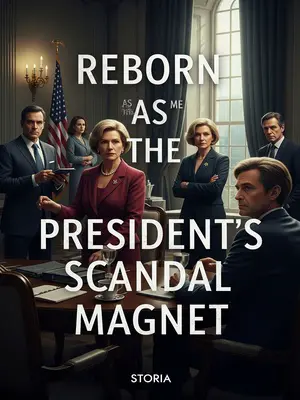Chapter 1: The Day Everything Changed
The day my husband lay dying, I didn’t waste a second. I drove straight to the fertility clinic and swapped out his frozen sperm.
The sharp, antiseptic chill of the clinic’s lobby slapped me awake as I stepped through the sliding glass doors, my jaw set in determination. Every tick of the wall clock was a countdown—not to a miracle, but to the end of a marriage built on secrets. My fingers trembled, but my resolve never did. I could almost hear Derek’s voice in my head—always calm, always in control. But this time, I was the one making the rules. In this city, nobody would save me but myself.
When the hospital called to confirm the body, I took Derek’s nearly stiff hand and pressed his fingerprint onto the stock transfer documents.
His skin was already cool, the sterile hum of the morgue seeping into my bones. I told myself it was just business, that love and trust had died before he did. The silence was broken only by the click of the pen and the scrape of my knee against the vinyl floor—reminders that some debts can only be paid in blood. In America, property and paperwork always outlast vows.
As the funeral was drawing to a close, my husband’s so-called “first love”—the woman he could never forget, Natalie Scott—showed up with a lawyer and his will.
The heavy oak doors of the funeral home creaked open, and Natalie strode in with that smug, predatory grace only women like her could manage. Her attorney—slick-haired, briefcase in hand—stood beside her like a bad omen. Even the hush that fell over the mourners felt American: half scandal, half spectacle. I squared my shoulders, ready to fight for everything I’d once believed was mine.
The doctor issued a critical condition notice.
The ICU’s fluorescent lights hummed overhead, casting a harsh glow on the floor tiles. I could smell the stale coffee and faint undertone of antiseptics, reminders that this was a place of endings. The clipboard in the nurse’s hand looked heavier than any verdict.
According to Derek’s wishes, family members entered the ICU one by one to say their last goodbyes.
Each person went in looking years older than when they’d entered the waiting room—eyes red, voices thin. American hospitals always felt both intimate and anonymous. The TV in the corner played reruns of Judge Judy, and someone’s kid clutched a Happy Meal toy, swinging their feet above the linoleum. Even grief seemed to echo off the linoleum walls.
When my in-laws came out of the room in tears, Derek’s personal assistant, Caleb, closed the door behind them.
Caleb’s face was composed, but his grip on the doorknob was white-knuckled. In times like these, the staff always tried to keep the family’s drama from spilling out into the hallway, but in our world, secrets were currency.
“Mrs. Cooper, Derek said he just… he can’t handle you seeing him like this. He doesn’t want you to go in,” Caleb said politely but firmly.
His voice was smooth, rehearsed. He wouldn’t meet my eyes. I knew the type—professional, loyal, but only to whoever signed his paycheck.
My mother-in-law wiped her tears and tried to comfort me. “Rachel, I know you and Derek loved each other deeply. Derek just doesn’t want you to see him sad. Listen to him, honey.”
She squeezed my arm in that tight, rehearsed way—more for the watching eyes than for my comfort. Her words were sweet as honey but cold as glass. It was the kind of empathy people offer when they’re protecting their own interests.
My father-in-law’s tone was harsh. “This is his last wish. Don’t be unreasonable.”
He fixed me with the kind of look you give a stubborn child. In his world, authority was never questioned, especially not by a daughter-in-law who didn’t carry the right last name.
I stared at the tightly closed ICU door. My heart trembled, and a chill ran through me.
My knuckles turned white around the handle of my purse. The corridor outside the ICU felt more like a courtroom, my sentence already handed down.
I never imagined that Derek—the man everyone praised for loving his wife more than life itself—would turn out to be such a liar.
His friends toasted us at barbecues, neighbors whispered about our fairytale love. But all the sweet nothings and anniversary roses couldn’t hide the rot beneath the surface. That was the real American dream: the mask you wear in public means more than the truth at home.
He said he couldn’t bear to part from me. But that was just an excuse to keep me away so he could secretly meet Natalie, his “first love” who had just returned from London, and settle his final affairs with her.
He’d been careful, keeping Natalie just out of sight, always a half-step beyond my reach. But in a country where old flames never quite go out—where your past follows you like a bad credit score—his secret wasn’t so well-kept after all.
In my previous life, I really believed Derek was just afraid I’d be too sad. I knelt outside the ICU, sobbing and begging for five hours just to see him one last time.
The nurses looked at me with pity, but nobody broke the rules. Five hours of humiliation on those hard hospital tiles, while strangers hurried past with takeout coffee and tired eyes. My grief was just background noise.
I knelt until my knees were numb and bruised, until his heart stopped beating. The door never opened.
By the time they rolled him away, my tears had dried on my cheeks, and my legs tingled with pins and needles. In America, even mourning is a solitary act.
Swallowing my grief and regret, I forced myself to take care of all Derek’s funeral arrangements.
I went home and called every florist, every caterer, every funeral director in the city. I ironed his favorite suit and picked out the photos for the slideshow, pretending that order could mask heartbreak. The house was too quiet—just the faint hum of the fridge and my own shallow breathing.
As the funeral was about to end, Natalie appeared with Derek’s will and a lawyer.
Her heels echoed down the aisle, her dress tailored to perfection. She stood at the pulpit, not even pretending to grieve, her attorney at her side. The funeral home’s air conditioner rattled overhead, but I felt a different kind of chill as she handed out envelopes with the Cooper crest embossed in gold.
The lawyer announced on the spot that Derek had frozen sperm stored at a private fertility clinic.
His voice was matter-of-fact, as if reading the day’s weather report. The words hung in the air, sharp as glass, and the congregation shifted uncomfortably in their pews.
According to the will, only Natalie was allowed to use Derek’s frozen sperm, and all his assets and company shares would go to his child—meaning Natalie’s child.
It was a legal coup, as American as any courtroom showdown—inheritance rights, frozen embryos, the language of trust funds and legacy. The lawyer’s voice was as cold as a judge’s gavel. In this country, your legacy is just another asset—up for grabs if you know the loopholes. My breath caught in my throat as the reality set in.
Before I could recover from the shock, my in-laws turned on me.
Their eyes, wet with tears, now glittered with accusation. I could feel the weight of judgment, the kind that only family can wield.
“You were married for five years and still refused to have a child. You dragged it out until my son died. You wicked woman, you just wanted to cut off the Cooper family line!”
Her voice rose, carrying through the sanctuary. The judgmental stares burned hotter than any candlelight vigil. Someone coughed awkwardly in the back, but nobody stepped in.
“The Coopers never treated you badly. If you dare stop Natalie from having a child, I’ll die right here in this church!”
She collapsed against the front pew, wailing like it was the Oscars. At American funerals, it’s always the living putting on the real show.
My in-laws wept bitterly, blaming everything on me.
Their grief was performative, their blame relentless. I glanced up at the stained-glass window, the colors smudged by the gray Ohio sky. If only sorrow could wash away hypocrisy.
But in reality, Derek was the one who didn’t want children. To leave an heir for the Cooper family, I had even secretly poked holes in the condoms, and I was already pregnant with a posthumous child.
The secret pressed heavy on my belly, a hidden defiance. I remembered the guilt, the hope, the desperate late-night searches for answers on motherhood forums. In America, you’re supposed to do anything for family—except tell the truth.
My desperate explanations were drowned out by the relatives’ accusations.
No one listened. Their anger was a tidal wave, and I was the driftwood caught in its wake. My words got lost, drowned by the noise.
“Derek treated you so well, and you wouldn’t even give him a child.”
The words stung, bitter as unsweetened coffee. I wanted to scream, but my throat closed up. I pictured flipping a pew, shattering the stained glass, anything to drown out their voices. But all I did was clench my fists and swallow it down.
“You must have been a nightmare at home. Now you only dare to have a child for yourself after your husband’s dead.”
Every eye in the room narrowed, lips pursed in suspicion. In this country, a woman’s worth is still measured in children.
“So selfish. The one who should have died is you.”
The words echoed, cold and final. Someone in the back even muttered, “She always was trouble.” I tried to keep my chin up, but my hands wouldn’t stop shaking.
Furious relatives drove me out of the funeral home.
The rain outside came down in sheets, plastering my hair to my forehead as I stumbled down the steps. The parking lot was empty except for my old Chevy, sitting under the single flickering lamp. The rain hit the Chevy’s hood like a drum solo, and my heels slipped on the painted lines. Someone inside probably filmed me through the blinds, waiting for the next viral meltdown. No one offered me an umbrella.
I wandered home in a daze, only to get into a car accident on the way.
The wail of sirens, the crunch of metal, the taste of blood in my mouth—everything blurred together. I saw my life flash in snapshots: Christmas mornings, late-night arguments, the ultrasound I never showed Derek. Red and blue lights danced across the windshield before everything faded.
Before I died, I saw Natalie sitting in another car, passing by. I clearly heard her vicious words: “Only I am worthy of bearing his child. You… you’re not worthy.”
She didn’t flinch as the ambulance lights flickered past her Lexus. Her words cut deeper than the shattered glass embedded in my skin. In America, betrayal was always personal, never just business.
Only then did I realize Natalie had overheard me. She was afraid my unborn child would compete for the inheritance, so she orchestrated the accident to kill me.
Her smile in the rearview mirror told me everything I needed to know. Money, legacy, and power—some people would do anything to keep their claim. My hands clenched around the steering wheel, but it was already too late.
When I opened my eyes again, I was back on the day Derek was critically ill.
Same hospital, same cold tile under my shoes. The hospital TV blared news about a local election. My heart thudded in my chest—second chances don’t come with instructions.
Given a second chance, I would turn the tables and reclaim everything that was mine.
This time, I wouldn’t wait for justice. I’d take it—no matter the cost.
